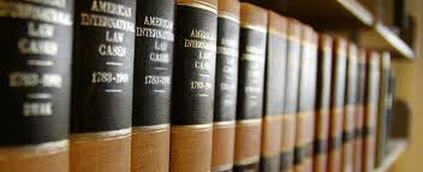 Chapter 13 Bankruptcy
Chapter 13 Bankruptcy The use of chapter 13 bankruptcy is to make people recognize their own finances. Though the entire law is about a bankruptcy, yet it allows the individuals to discharge debt due to the priority based, and security based debt. If a discharge is filed, it means the debtor does not become responsible for the debt anymore. In order to procure a discharge, the debtor needs to make the total plan. In order to file such a case, the person must do a counselling from the credit counselor that is thoroughly approved by the office of a United States Trustee. Other than that, once the case is started, the debtor must do the class of discharging the financial management.
Need of the trustee office
The meeting that is generally conducted at the trustee office will need the debtor to give the documents like he current payment proof, a tax return paper, a driving license, and a card for the social security. The chapter 13 bankruptcy will remain on the credit report of the debtor after 7 years since the case is filed. The debtor can file the case, and if the debtor wins the case, the debtor generally gets the leverage to pay the entire amount within 60 months from the cover date without the risk of getting bankrupt. Thus, it becomes a very helpful chapter in the case of bankruptcy.
Need of the trustee office
The meeting that is generally conducted at the trustee office will need the debtor to give the documents like he current payment proof, a tax return paper, a driving license, and a card for the social security. The chapter 13 bankruptcy will remain on the credit report of the debtor after 7 years since the case is filed. The debtor can file the case, and if the debtor wins the case, the debtor generally gets the leverage to pay the entire amount within 60 months from the cover date without the risk of getting bankrupt. Thus, it becomes a very helpful chapter in the case of bankruptcy.

The mortgage law of chapter 13
After the filing of chapter 13 bankruptcy the mortgage will have to start again without the late fees. However, if the payment is done late, it will generally be considered as a late payment. If the debtor goes behind the date of the mortgage payment after the case of bankruptcy is filed, the creditor can file a case, and the court can start with the process of foreclosure. Usually, all the company allows the debtor to pay the entire amount over a period of six months. Moreover, the bankruptcy rules have changed a lot, and all the mortgage companies are allowed to file an after-petition charge.
Law regarding vehicle possession
The chapter 13 bankruptcy does not allow the repossession of cars, and often allows the debtor to repay the value of the car at a very lower rate of interest. If the vehicle is repossessed before the filing of bankruptcy, and if the car is not sold off, the creditor has to give the vehicle back. If the debtor completes the rule of bankruptcy, then the debtor gets the vehicle back after the signing of the discharge order. Sometimes, this law allows the debtor to pay a tax related to IRS. The debtor will pay the secured portion of that tax as a claim proof of the present interest rate.
Opportunity from the web
All the laws regarding the chapter 13 bankruptcy are very complicated. You must know the basics of this law in order to get the right advantage of the aforesaid law. Thus, you must consult the web to have a thorough overview about the entire process. Some of the websites explain the law in the best possible way. Moreover, the laws protecting the debtors are many. Once you get hold of all the opportunities you have, you will be able to fight the case in a better way.
Great Info!
After the filing of chapter 13 bankruptcy the mortgage will have to start again without the late fees. However, if the payment is done late, it will generally be considered as a late payment. If the debtor goes behind the date of the mortgage payment after the case of bankruptcy is filed, the creditor can file a case, and the court can start with the process of foreclosure. Usually, all the company allows the debtor to pay the entire amount over a period of six months. Moreover, the bankruptcy rules have changed a lot, and all the mortgage companies are allowed to file an after-petition charge.
Law regarding vehicle possession
The chapter 13 bankruptcy does not allow the repossession of cars, and often allows the debtor to repay the value of the car at a very lower rate of interest. If the vehicle is repossessed before the filing of bankruptcy, and if the car is not sold off, the creditor has to give the vehicle back. If the debtor completes the rule of bankruptcy, then the debtor gets the vehicle back after the signing of the discharge order. Sometimes, this law allows the debtor to pay a tax related to IRS. The debtor will pay the secured portion of that tax as a claim proof of the present interest rate.
Opportunity from the web
All the laws regarding the chapter 13 bankruptcy are very complicated. You must know the basics of this law in order to get the right advantage of the aforesaid law. Thus, you must consult the web to have a thorough overview about the entire process. Some of the websites explain the law in the best possible way. Moreover, the laws protecting the debtors are many. Once you get hold of all the opportunities you have, you will be able to fight the case in a better way.
Great Info!
 RSS Feed
RSS Feed